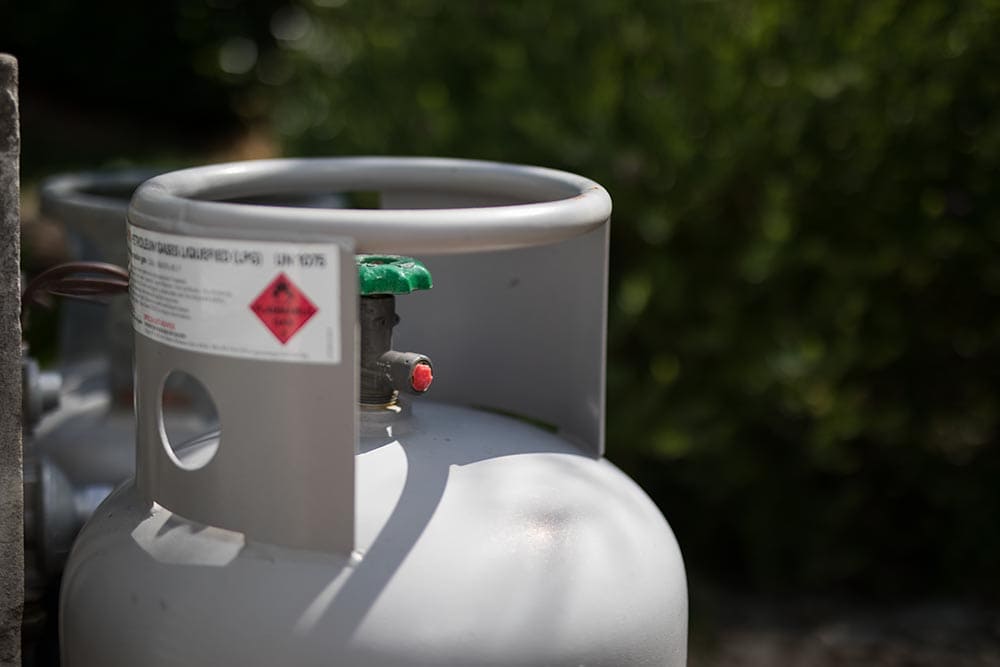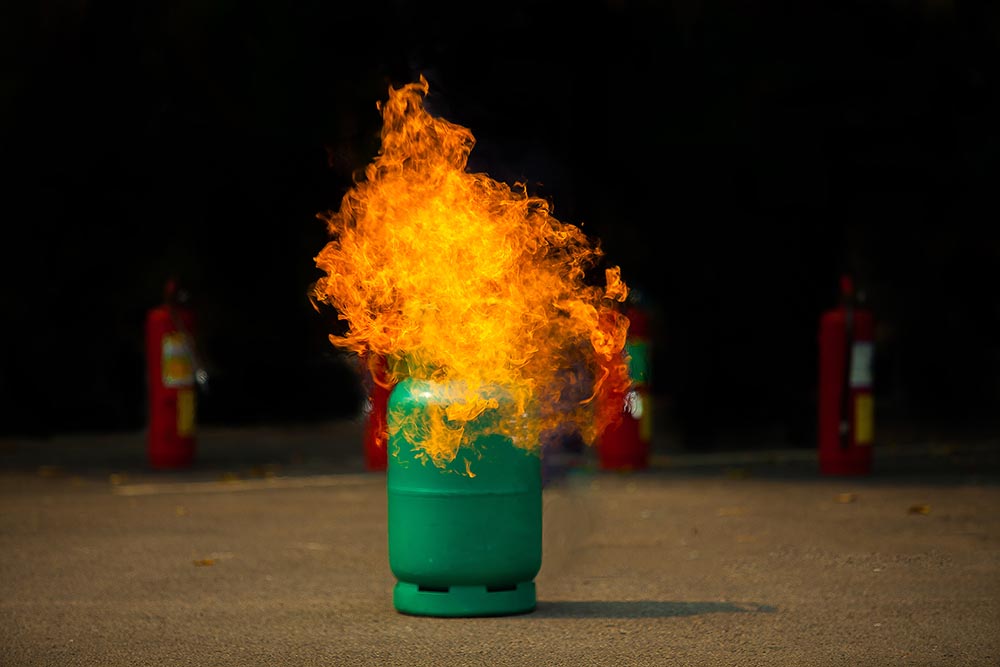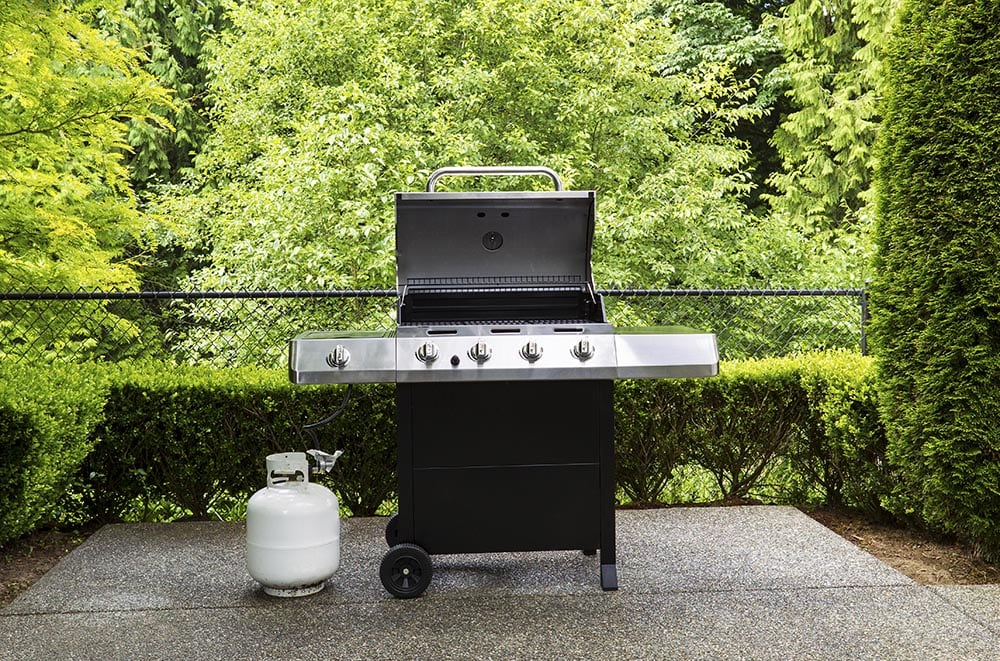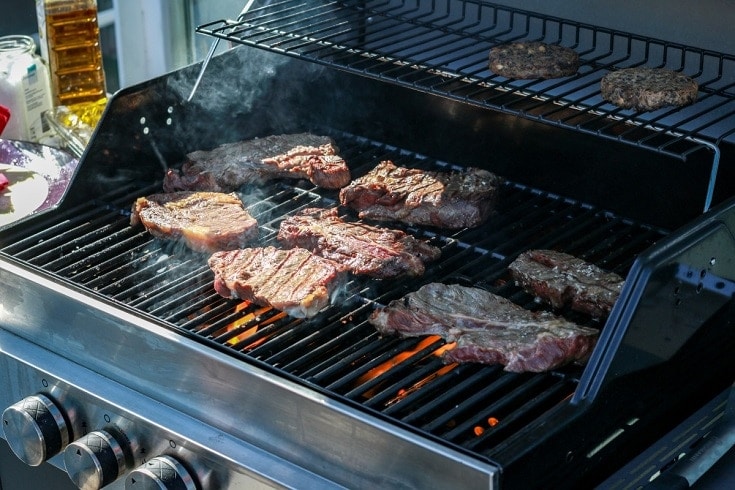Can Propane Tanks Explode? Reasons, Facts & FAQ
-
Ed Malaker
- Last updated:

Propane is a great low-cost fuel that many people use in their homes to run the stove or even heat the house. It’s also a popular type of portable fuel, and many people use it to run a grill in the backyard or on a camping trip. It’s common in RVs too. However, since it is so popular, it’s natural to wonder about its safety, and many people worry that it can explode. While this is possible, it’s not likely, but keep reading as we look over the different issues that might put you more at risk.

Do Propane Tanks Explode?
Yes, propane tanks do explode, and some reports suggest that as many as 600 tanks explode yearly. However, while that number sounds quite large, your risk of dying in the explosion is quite low, with some estimates putting your chances at about 1 in 37 million. There are more than 60 million propane grills in the United States and more than 50 million residential propane users, so you can feel confident that propane is safe.

Why Do Propane Tanks Explode?
Tipping Over or Impact
Propane tanks are durable and have a sturdy construction, so they are not likely to explode. One of the biggest reasons that your tank might explode is that another object, like a motor vehicle, strikes it.
Human Error
Another common cause of propane tank explosions is human error. If you are an inexperienced user, read your owner’s manual carefully so you can attach the propane tank correctly. Ensure that you understand how to read the pressure valves so the pressure doesn’t get too high. You also should check for leaky connections or outdated hoses that might lead to an explosion. Having your equipment serviced annually to replace worn-out components is also a good idea.
Hot Environment
High temperatures can also lead to a propane tank explosion. Many areas, especially in the south, can experience high temperatures in the summer, and if the tank is sitting in direct sunlight, it might explode. Therefore, always ensure that a roof or cover is over your propane tank if you keep it outside. Keeping it in a shed or garage can also help keep it out of the sun.

Other Common Causes of Fires Related to Propane
Dirty Grill
Explosions aren’t the only problem associated with propane tanks, as many fires start yearly at the barbecue grill. However, propane doesn’t start these fires. Many people simply don’t take the time to clean their grills well, assuming that the high temperatures will kill any bacteria. However, oil and other combustible materials can still build up, resulting in a fire that could potentially put the propane tank in danger. Therefore, we recommend scrubbing the grill with a wire brush after every use.
Leaving the Grill Unattended
Another common reason grills and even household stove top ranges catch fire is that people leave them unattended. When cooking meats with an open flame, oils and fats can quickly burst into flame and even burn out of control, catching nearby objects on fire. A focused attendant who frequently checks the temperature and makes other adjustments will minimize the fire risk of using a backyard grill.

Putting the Grill Too Close to Flammable Materials
Fats and oils can quickly burst into flame. If you keep your grill on the porch or patio, nearby objects might catch fire when a flare-up occurs, especially on a windy day. Always ensure that there is plenty of space between the grill and anything flammable, especially curtains, shades, brooms, and umbrellas.
Poor Maintenance
Not maintaining your equipment will put you more at risk of fire. Grills and other devices that use propane can have many components that get dirty and wear out. In fact, some reports state that up to 14% of grill fires are due to a break or leak in the gas line. Frequently having your equipment maintained by a licensed professional is the best way to reduce the risk of fire or explosions due to mechanical failure.
Conclusion
Unfortunately, it’s true that a propane tank could explode, but it’s extremely unlikely and rarely happens. Most explosions occur due to collisions with the tank, improper use, and lack of maintenance. Following a few simple common-sense guidelines, like keeping it out of the driveway and using it far away from flammable objects, makes propane usage relatively safe.
Featured Image Credit: LIGHTITUP, Shutterstock
Contents
